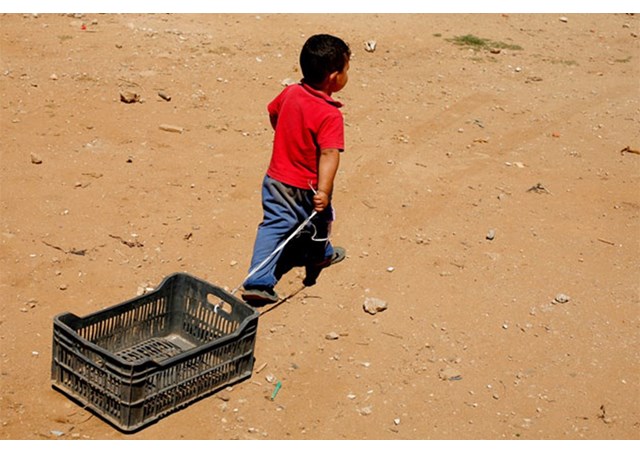
Syrian refugees: tough choices for Lebanon’s aid workers

(Vatican Radio) Hundreds of thousands of Syrian children in Lebanon are growing up without an education, learning the lessons of war, hatred and hunger instead of the alphabet and arithmetic. But through its partners, Caritas Internationalis, the global federation of Catholic aid and development agencies, is doing what it can to change that.
Director of Communications, Patrick Nicholson says Lebanon is struggling to host more than one million Syrian refugees – one third of its own population. And half of those refugees are children.
In this interview with Tracey McClure, Nicholson explains why some families are marrying off their daughters as children and how others are profiting from the crisis:
Working with the U.N., Caritas Lebanon has been able to send a mere 60,000 Syrian children to Lebanese schools – after Lebanese students leave for the day.
That number, Nicholson says, “is a lot for us, but obviously it’s just a drop in the ocean when you think that there are half a million Syrian children in Lebanon.” Nevertheless, he considers Caritas’ efforts a success.
Nicholson, who has just returned from a tour of Caritas’ outreach programs in Lebanon, says what really strikes one about the refugees are “the hundreds of children running around with nothing to do – maybe with a football, maybe playing games and you are overwhelmed by the number of them and obviously the question is, why aren’t they in school?”
Nicholson admits that this “lost generation” of children poses a formidable challenge to the region. “What we’re trying to do is break this cycle of violence and we do that through counselling, through group therapy and also by trying to get the children into some form of education whether that’s into school or into after-school classes, but to ensure that they are learning something.”
Read from Patrick Nicholson's blog, A Day in the Life... http://www.caritas.org/2014/07/day-life-syrian-refugees-lebanon/
Lebanon, he says, has done “an amazing job” of welcoming so many refugees. “I can’t imagine any other country would be able to take on a third of its population – it’s extraordinary how many people (Lebanon) has taken on.”
But, three years into the crisis, tensions have in some areas turned hostile and funds are scarce. “Appeals for the Syrian refugee crisis,” Nicholson notes, “are actually only a quarter funded.”
http://www.caritas.org/2014/07/still-come-syrian-refugees-lebanon/
Aid and healthcare workers in Lebanon sometimes have to make extremely painful life and death decisions, Nicholson says, pointing to one woman he met whose child, sick with cancer, was refused treatment so that 200 other children with mild illnesses could receive care.
“They see this huge need and they want to be able to be doing something about it but the world, the international community, has really just hung Lebanon out to dry. It just does not have the resources it needs and the Caritas staff will say: how can this be possible? So much money is going into fund this war through the sale of arms – but why can’t the international community pick up the humanitarian tab for it?”
| All the contents on this site are copyrighted ©. |


